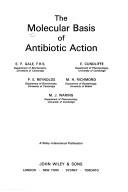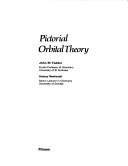| Listing 1 - 10 of 14 | << page >> |
Sort by
|
Book
Year: 2004 Publisher: Gent Vlerick Leuven Gent management school
Abstract | Keywords | Export | Availability | Bookmark
 Loading...
Loading...Choose an application
- Reference Manager
- EndNote
- RefWorks (Direct export to RefWorks)
Small business profitability --- Management practices --- Owner-manager human capital --- Structural model
Book
Year: 2016 Publisher: Washington, D.C. : The World Bank,
Abstract | Keywords | Export | Availability | Bookmark
 Loading...
Loading...Choose an application
- Reference Manager
- EndNote
- RefWorks (Direct export to RefWorks)
Evidence from developed country data suggests that cognitive and non-cognitive skills contribute to improved labor market outcomes. This paper tests this hypothesis in a developing country by using an individual-level data set from Peru that incorporates modules to measure cognitive and non-cognitive skills. The paper estimates a structural latent model with unobserved heterogeneity to capture full ability rather than just measured skill. It also applies standard ordinary least squares techniques for comparison. The analysis confirms that cognitive and non-cognitive skills are positively correlated with a range of labor market outcomes in Peru. In particular, cognitive skills positively correlate with wages and the probability of being a wage worker, white-collar, and formal worker, with verbal fluency and numeric ability playing particularly strong roles. The results are robust to methodology. The patterns are less uniform for non-cognitive skills. For instance, perseverance of effort (grit) emerges strongly for most outcomes regardless of methodology. However, plasticity-an aggregation of openness to experience and emotional stability-is only correlated with employment, and only when using the structural latent model. The ordinary least squares method also finds that the disaggregated non-cognitive skills of kindness, cooperation, emotional stability, and openness to experience emerge significantly, mostly for the wage estimates. The different results derived from the ordinary least squares and the structural model with latent skills suggest strong measurement bias in most non-cognitive skills measurement. These findings, although only correlational because of the use of a single cross-section, suggest that recent efforts by the Peruvian government to incorporate non-cognitive skill development into the school curriculum are justified.
Access & Equity in Basic Education --- Cognitive --- Education --- Education for All --- Educational Sciences --- Effective Schools & Teachers --- Employment --- Latent Skills --- Non-Cognitive Skills --- Primary Education --- Schooling --- Structural Model --- Wages
Book
Year: 2016 Publisher: Washington, D.C. : The World Bank,
Abstract | Keywords | Export | Availability | Bookmark
 Loading...
Loading...Choose an application
- Reference Manager
- EndNote
- RefWorks (Direct export to RefWorks)
Evidence from developed country data suggests that cognitive and non-cognitive skills contribute to improved labor market outcomes. This paper tests this hypothesis in a developing country by using an individual-level data set from Peru that incorporates modules to measure cognitive and non-cognitive skills. The paper estimates a structural latent model with unobserved heterogeneity to capture full ability rather than just measured skill. It also applies standard ordinary least squares techniques for comparison. The analysis confirms that cognitive and non-cognitive skills are positively correlated with a range of labor market outcomes in Peru. In particular, cognitive skills positively correlate with wages and the probability of being a wage worker, white-collar, and formal worker, with verbal fluency and numeric ability playing particularly strong roles. The results are robust to methodology. The patterns are less uniform for non-cognitive skills. For instance, perseverance of effort (grit) emerges strongly for most outcomes regardless of methodology. However, plasticity-an aggregation of openness to experience and emotional stability-is only correlated with employment, and only when using the structural latent model. The ordinary least squares method also finds that the disaggregated non-cognitive skills of kindness, cooperation, emotional stability, and openness to experience emerge significantly, mostly for the wage estimates. The different results derived from the ordinary least squares and the structural model with latent skills suggest strong measurement bias in most non-cognitive skills measurement. These findings, although only correlational because of the use of a single cross-section, suggest that recent efforts by the Peruvian government to incorporate non-cognitive skill development into the school curriculum are justified.
Access & Equity in Basic Education --- Cognitive --- Education --- Education for All --- Educational Sciences --- Effective Schools & Teachers --- Employment --- Latent Skills --- Non-Cognitive Skills --- Primary Education --- Schooling --- Structural Model --- Wages
Book
ISBN: 0853122148 9780853122142 Year: 1984 Publisher: Chichester Horwood
Abstract | Keywords | Export | Availability | Bookmark
 Loading...
Loading...Choose an application
- Reference Manager
- EndNote
- RefWorks (Direct export to RefWorks)
MODELS, STRUCTURAL --- Extremities --- Bionics --- CYBERNETICS --- physiology --- Bionics. --- Cybernetics. --- Models, Structural. --- 612.76 --- Model, Structural --- Structural Model --- Structural Models --- Cybernetic --- Bionic --- Cybernetics --- Models, Biological --- physiology. --- Locomotie. Beweging. Lichaamsmechanica. Biomedische ingenieurstechnieken --- Models, Structural --- Extremities - physiology

ISBN: 0471279153 Year: 1982 Publisher: London Wiley
Abstract | Keywords | Export | Availability | Bookmark
 Loading...
Loading...Choose an application
- Reference Manager
- EndNote
- RefWorks (Direct export to RefWorks)
544.165 --- Anti-Bacterial Agents --- Models, Structural. --- Antibiotics --- Anti-infective agents --- Microbial metabolites --- Allelopathic agents --- Antibiosis --- Pharmaceutical microbiology --- Phytoncides --- Model, Structural --- Structural Model --- Structural Models --- Structure-activity relationship --- pharmacology. --- Infectious diseases. Communicable diseases --- Models, Structural --- pharmacology --- Molecular biology --- Pharmacology. Therapy --- Molecular structure-biological activity relationship
Book
ISBN: 0713124830 0713124911 9780713124910 Year: 1975 Publisher: London Arnold
Abstract | Keywords | Export | Availability | Bookmark
 Loading...
Loading...Choose an application
- Reference Manager
- EndNote
- RefWorks (Direct export to RefWorks)
Chemical structure --- fysicochemie --- Chemistry, Physical and theoretical --- Molecules --- Chimie physique et théorique --- Molécules --- MODELS, STRUCTURAL, physics --- Chemistry, Physical --- Models, Structural. --- Chemistry, Physical. --- 539.19 --- #WSCH:MODS --- Physical Chemistry --- Chemistries, Physical --- Physical Chemistries --- Model, Structural --- Structural Model --- Structural Models --- Physics of single molecules --- 539.19 Physics of single molecules --- Chimie physique et théorique --- Molécules --- Models, Structural --- Chemistry, Theoretical --- Physical chemistry --- Theoretical chemistry --- Chemistry --- Molecular structure. --- Crystal structure --- Spectra --- Spectroscopy --- Symmetry --- Wave function
Periodical
Abstract | Keywords | Export | Availability | Bookmark
 Loading...
Loading...Choose an application
- Reference Manager
- EndNote
- RefWorks (Direct export to RefWorks)
Life Sciences --- Chemistry --- Health Sciences --- Biology --- Biochemistry --- Medical Education, Training & Research --- General and Others --- Molecular biology --- Molecular Biology. --- Macromolecular Substances. --- Models, Structural. --- Molecular biology. --- Molecular biochemistry --- Molecular biophysics --- Model, Structural --- Structural Model --- Structural Models --- Macromolecular Complexes --- Macromolecular Compounds --- Macromolecular Compounds and Complexes --- Complexes, Macromolecular --- Compounds, Macromolecular --- Substances, Macromolecular --- Biochemical Genetics --- Biology, Molecular --- Genetics, Biochemical --- Genetics, Molecular --- Molecular Genetics --- Biochemical Genetic --- Genetic, Biochemical --- Genetic, Molecular --- Molecular Genetic --- Structural Biology. --- structural biology --- macromolecules --- Biophysics --- Biomolecules --- Systems biology --- Nanostructures --- Genetic Phenomena

ISBN: 0471290378 9780471290377 Year: 1972 Publisher: London Wiley
Abstract | Keywords | Export | Availability | Bookmark
 Loading...
Loading...Choose an application
- Reference Manager
- EndNote
- RefWorks (Direct export to RefWorks)
Antibiotics --- Models, Structural --- Antibiotiques --- pharmacodynamics --- Anti-Bacterial Agents --- Models, Structural. --- 577.18 --- 577.1 --- Anti-infective agents --- Microbial metabolites --- Allelopathic agents --- Antibiosis --- Pharmaceutical microbiology --- Phytoncides --- Model, Structural --- Structural Model --- Structural Models --- pharmacology. --- Chemical bases of life. Biochemistry and bio-organic chemistry generally --- Antibiotics. --- 577.1 Chemical bases of life. Biochemistry and bio-organic chemistry generally --- 577.18 Antibiotics --- pharmacodynamics. --- pharmacology --- Molecular biology --- Pharmacology. Therapy --- Infectious diseases. Communicable diseases

ISBN: 0471400661 9780471400660 Year: 1971 Volume: 21 Publisher: New York (N.Y.): Wiley
Abstract | Keywords | Export | Availability | Bookmark
 Loading...
Loading...Choose an application
- Reference Manager
- EndNote
- RefWorks (Direct export to RefWorks)
Dynamics --- Kinematics --- Quantum theory --- Chemistry, Physical and theoretical --- Dynamique --- Cinématique --- Théorie quantique --- Chimie physique et théorique --- Biophysics. --- Chemistry, Physical. --- Models, Structural. --- Quantum Theory. --- Quantum Theories --- Theories, Quantum --- Theory, Quantum --- Model, Structural --- Structural Model --- Structural Models --- Physical Chemistry --- Chemistries, Physical --- Physical Chemistries --- Mechanobiology --- Cinématique --- Théorie quantique --- Chimie physique et théorique --- Biophysics --- Chemistry, Physical --- Models, Structural --- Quantum Theory --- Chemistry, Physical and theoretical. --- Quantum theory. --- Molecular dynamics. --- Kinematics. --- Biophysique --- Dynamique moléculaire. --- Eyring, Henry, --- Eyring, Henry --- Chimie physique et théorique. --- Dynamique moléculaire

ISBN: 0273019023 0273022652 Year: 1985 Publisher: Marshfield: Pitman
Abstract | Keywords | Export | Availability | Bookmark
 Loading...
Loading...Choose an application
- Reference Manager
- EndNote
- RefWorks (Direct export to RefWorks)
fysicochemie --- Organic reaction mechanisms and kinetics --- Molecular orbitals --- Orbites moléculaires --- Models, Structural. --- 539.193 --- #WSCH:MODS --- Model, Structural --- Structural Model --- Structural Models --- General properties. Configuration and geometry of molecules. Bond lengths and angles in molecules. Moments etc. --- Molecular orbitals. --- Quantumchemie --- Quantumchemie. --- 539.193 General properties. Configuration and geometry of molecules. Bond lengths and angles in molecules. Moments etc. --- Orbites moléculaires --- Models, Structural --- Orbitals, Molecular --- Chemical bonds --- Electrons --- Molecules --- Overlap integral --- Quantum chemistry --- Valence (Theoretical chemistry) --- Wave mechanics --- General properties. Configuration and geometry of molecules. Bond lengths and angles in molecules. Moments etc
| Listing 1 - 10 of 14 | << page >> |
Sort by
|

 Search
Search Feedback
Feedback About
About Help
Help News
News